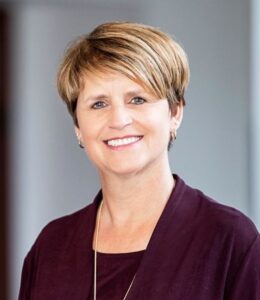 2 min read September 2021 — Karen Sedatole, interim John H. Harland dean of Emory University’s Goizueta Business School, spoke to Invest: about the challenges the school faced as it confronted the pandemic. With investment and critical thought, they were able to move the entire campus online, which Sedatole called a resounding success. Looking to the future, remote learning is here to stay but, at Emory, not in the way you might think.
2 min read September 2021 — Karen Sedatole, interim John H. Harland dean of Emory University’s Goizueta Business School, spoke to Invest: about the challenges the school faced as it confronted the pandemic. With investment and critical thought, they were able to move the entire campus online, which Sedatole called a resounding success. Looking to the future, remote learning is here to stay but, at Emory, not in the way you might think.
What are the biggest takeaways from the last year and a half?
Like all institutions, we did a major pivot in March 2020 to online learning. I was a regular faculty member at that time, teaching a management accounting MBA course, so I experienced that first-hand. It was a bit of a fire drill, a last-minute pivot into online teaching. At that time, virtually none of our faculty had taught online. We spent the entire summer of 2020 gearing up and getting ready for online teaching again in the fall. We invested in facilities, we invested in technology in the classroom, in cameras, microphones and protective equipment. We invested in our faculty by hiring instructional designers. Those designers worked with our faculty all summer as they retooled their course content to be delivered in an online environment. There are different pedagogical techniques that are effective, and we became experts in those techniques. Now, 100% of our faculty has taught online. It wasn’t pretty at first, but our faculty rose to the occasion and the students exhibited perseverance and patience.
How has demand in different areas changed over the last few years?
Last year, we launched two new centers—The Roberto C. Goizueta Center for Entrepreneurship & Innovation as well as The Roberto C. Goizueta Business & Society Institute—both of which reflect the shifting interests of the next generation of students. The latter, in particular, has seen explosive growth in student engagement. We started a business and society course a few years ago that examines how organizations can alter their business models to positively impact pressing social and environmental challenges that affect us all. What began as a class of 20 students now numbers over two hundred. With the racial justice movement of last summer, we’ve seen even stronger interest. People are thinking very carefully about the role of business in society. We take that seriously in our curriculum.
What educational program are you looking to expand?
We are expanding our programming in The Roberto C. Goizueta Center for Entrepreneurship & Innovation as well as The Roberto C. Goizueta Business & Society Institute. For the institute, our faculty and community partners work with micro-entrepreneurs throughout the Atlanta region as part of its Start:ME program. We are continually expanding the reach and impact of that program. We are moving into the second year of the John R. Lewis Racial Justice Case Competition, which provides students the opportunity to work with major companies actively looking to address issues of racial inequality, both inside and outside their organizations. The first year saw 500 participants from more than 50 universities working with six Fortune 500 companies. This year, we’re expanding the competition to include other host universities so that we can grow participation and elevate the impact of our work. In the center, we have a new student-led initiative, the Peachtree Minority Venture Fund, in which students will vet and make investments in minority-owned venture capital projects. We’ve set aside $1 million for this initiative that is under the control of the students, and it will be integrated with a course creating an innovative experiential learning opportunity. While other schools have student-led venture capital funds, this is the only program of its kind in the country that is focused on minority-owned businesses.
What is the future of remote learning?
In 2019, we set about building a “global classroom,” a state-of-the-art place where instructors can teach to an online audience. But it’s not on Zoom. It’s leading-edge technology with a much better learning environment that makes students feel like they are in the room together. We were able, in fact, to build three of these rooms, which we finished this spring. So, we’re not done with remote learning. Our plan is to use these new classrooms to expand our reach. We will also use this technology to deliver an online Executive MBA program, which would make us the only top-25 business school to offer the highly sought after Executive MBA in an online format.
How is Emory facing gaps in traditional higher education?
Access is the key. Access means, at the most basic level, scholarships for students. In our development efforts, our top priority is to build our scholarship offerings to give students greater access to the incredible programs that we have. We’ve recently received several multi-million dollar gifts to support our scholarship efforts, and we are particularly pleased that our donors are focused on bolstering underrepresented populations in graduate business programs including women and people of color. To be able to provide scholarship dollars is key. We are also working in other ways to provide access. We have a program to provide career exposure and opportunities within the finance industry in concert with Agnes Scott College, Morehouse College, and Spelman College. We are excited about these collaborations and the opportunity to attract women and people of color to careers in financial services and to our new Master of Analytical Finance degree for which we are now taking applications.
For more information, visit:
